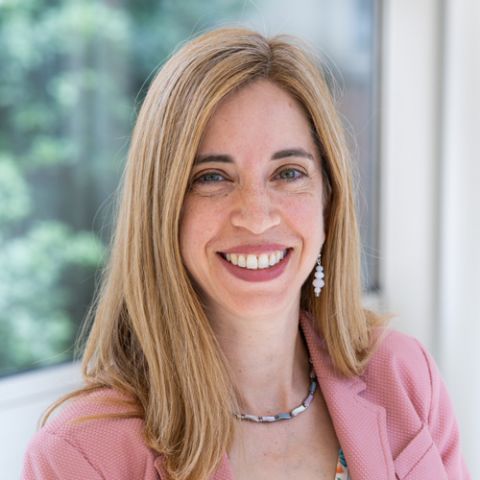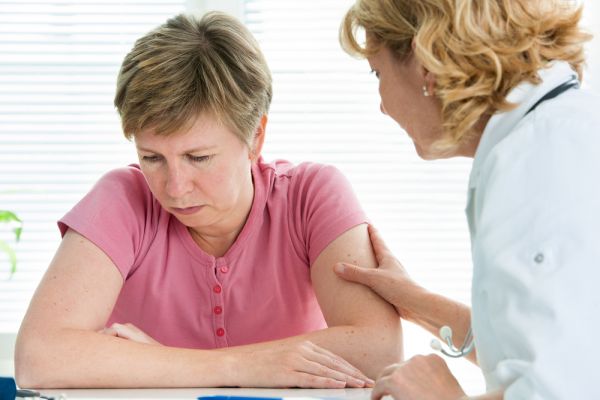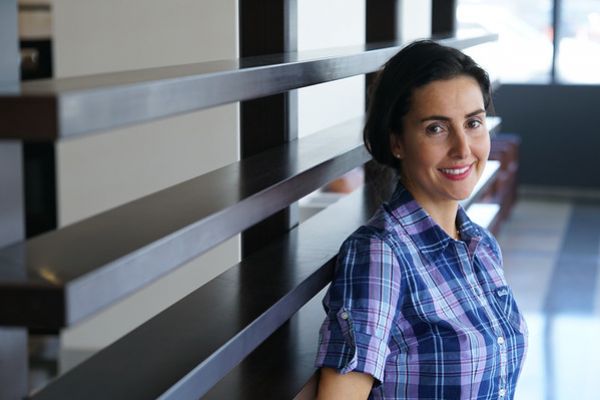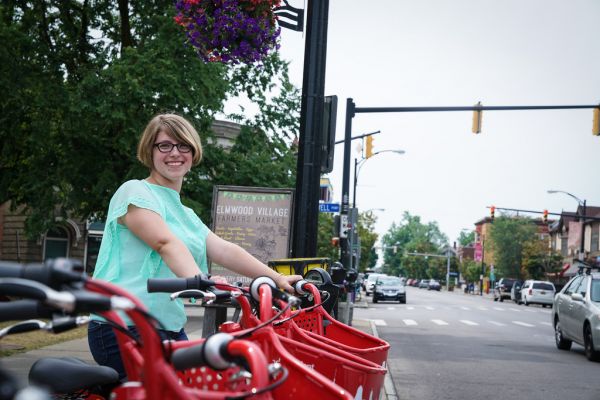Our patients are dealing with the most emotionally difficult experience of their lives, — they deal with stress, anxiety and worry that might be at levels they’ve never experienced before.
No wonder — along with concerns about their health, many cancer patients carry related worries about medical bills, the inability to work or take care of a home and family, chronic pain, tension in personal relationships, reduced contact with friends and poorer quality of life. Studies estimate that between one-third to one-half of all cancer patients develop emotional and psychological problems as a result of their diagnosis.
“Not everyone who gets cancer is depressed,” notes Amy Case, MD, FAAHPM, Chair of the Department of Supportive Care. “Many people cope with it very well. But there’s a pretty large group of people who have a lot of stress and anxiety from the very beginning. Those patients need a little more support.”
To better serve patients who are struggling with those kinds of issues, Roswell Park now offers 24/7 psychiatric support through Suburban Psychiatric Associates. Maria Cartagena, MD, a board-certified psychiatrist, and Stefania Fynn-Aikins, NP, a board-certified mental health nurse practitioner, now provide consultations for inpatients and also see patients at a weekly outpatient clinic at Roswell Park. "The treatment of psychiatric illness, such as depression, in patients with a cancer diagnosis is of utmost importance, as evidence suggests outcomes are better when psychiatric care is used effectively," says Dr. Cartagena.
Never miss another Cancer Talk blog!
Sign up to receive our monthly Cancer Talk e-newsletter.
This service adds a new dimension to Roswell Park’s existing Psychosocial Oncology team, which also includes two full-time medical psychologists for adult patients, a pediatric psychologist and a team of social workers.
In the past we provided urgent care for psychiatric emergencies, but many patients need psychosocial or psychiatric support as part of their regular care. That care will now be delivered in the Department of Supportive and Palliative Care, which encompasses psychiatry, psychology, pastoral care and palliative care. It’s much more coordinated — you can deal with all your needs at one time, in one location, as opposed to bouncing through multiple places on different days.
“It’s a team approach that covers patients’ physical, psychosocial and spiritual needs,” adds Dr. Case. “Now we have a more unified approach to supporting patients and their families and caregivers.”
Dr. Case says it will now be easier for patients to access psychosocial services. Dr. Cartagena will frequently join other physicians on their “rounds” — regular visits with inpatients — and will be in close contact with other members of the medical team.
At the same time, when a team member recognizes that a patient is experiencing a high level of distress, the patient will automatically be referred for supportive care or psychological support. “Patients can also self-refer,” says Dr. Case. “They can speak with their oncologist or social worker or a member of their team.”
“Your physical and mental well-being go together,” says Dr. Kuvshinoff. “By having a board-certified psychiatrist coming here routinely several times a week, we can provide greater continuity of care.”




